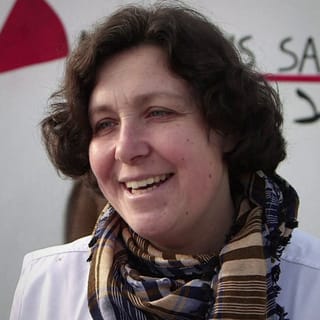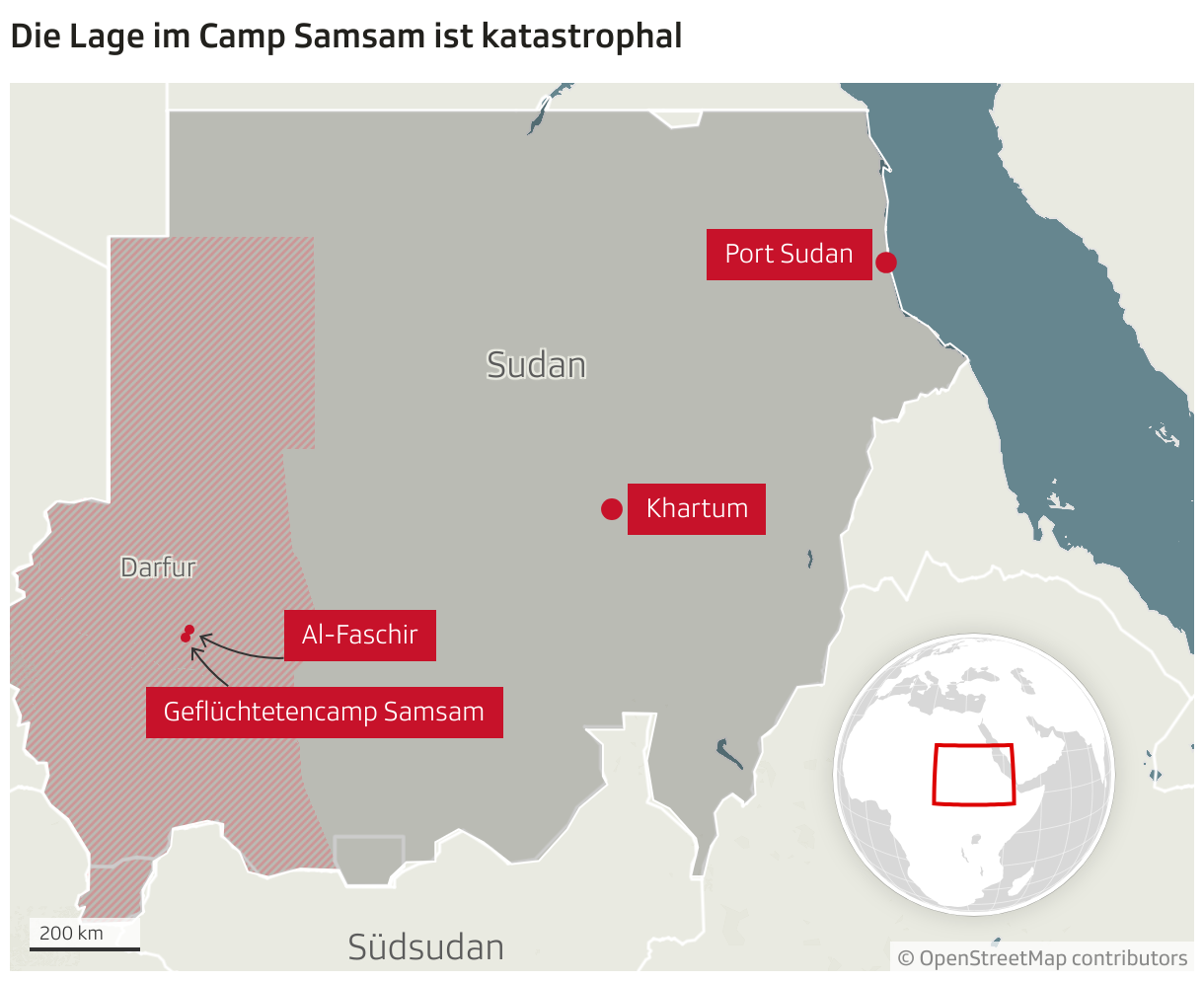The Sudanese army and the Rapid Support Forces militias have been fighting each other with great brutality in Sudan for ten months. The fronts are unclear and constantly changing – this has devastating consequences for the civilian population. One of the few international aid organizations still present is Médecins sans frontières (MSF). Their head in Sudan, Claire Nicolet, speaks of catastrophic conditions. She is currently in Al-Fashir. There is one of the largest camps for internally displaced people, Camp Samsam, with around 450,000 people.
SRF News: Can you describe the current situation in the Samsam refugee camp?
Claire Nicolet: The situation is very difficult. New refugees arrive at the camp every day. They are marked by the hardships of flight. But the situation is also bad for those who have been here for a long time.
That’s why people drink polluted water from puddles and the stream.
There is too little medical care. There is hardly any food or drinking water left in the camp. That’s why people drink polluted water from puddles and the stream. They have to buy food at the market in the nearby town of Al-Fashir. The situation is catastrophic.
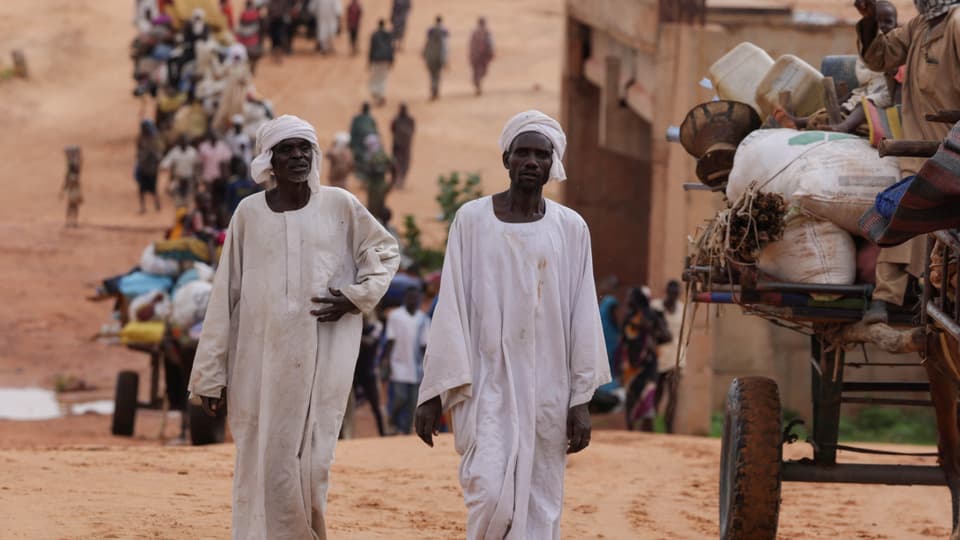
Legend:
At least 12,000 people have been killed in the latest fighting in Sudan, over eight million are displaced and 25 million are dependent on humanitarian aid. That’s more than half of the country’s population.
Reuters/Zohra Bensemra (08/04/2023)
What is the health status of the people in the Samsam camp?
He is bad. The health station in the camp is completely overwhelmed. The mortality rate is very high: it is more than twice as high as during other crisis situations and ten times higher than under normal living conditions. We estimate that a child dies every two hours in the camp. Malnutrition is also incredibly high. 40 percent of children and pregnant women are severely malnourished.
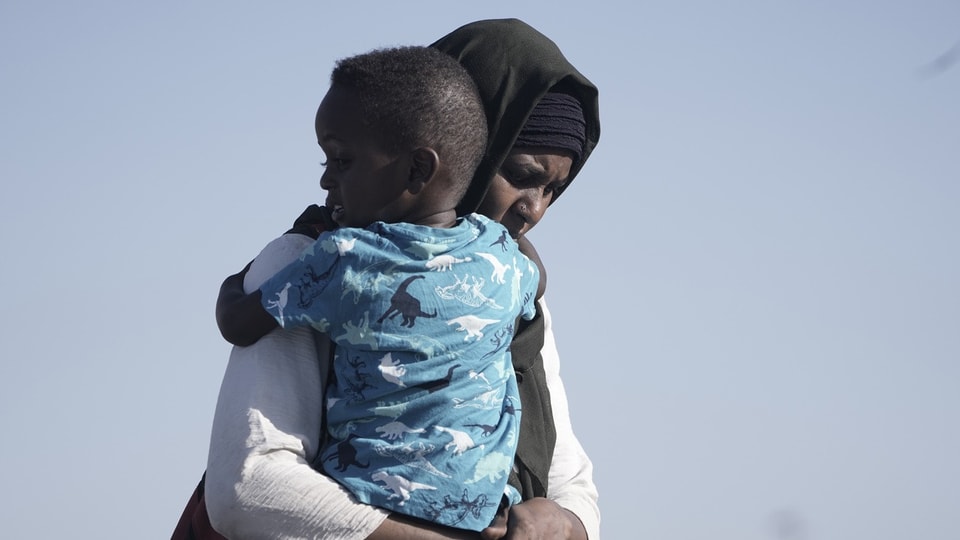
Legend:
Immediately after the fighting broke out, UN organizations such as the World Food Program stopped their work in the camp. Many transport routes are either too dangerous or destroyed. Many children also suffer from the lack of care.
Keystone/AP/Amr Nabil (05/04/2023)
What medical care can you currently provide for the people in the camp?
We continue to offer general examinations. We also support the hospitals in the nearby town of Al-Fashir. But there have been no vaccines at all for months, for example. There is also a lack of medicine because supplies are hardly coming due to the fighting. We are the only organization still present in the camp. And because of the size of the camp, we can only care for a portion of the people at risk.
What is the humanitarian situation in other parts of Sudan?
The humanitarian situation is also catastrophic in other parts of the country, mostly because it is difficult to get aid supplies to certain areas. For example, we support a hospital in the capital Khartoum. This is in an area controlled by the Rapid Support Forces militias. And they deny us access. It is also no longer possible to bring aid supplies from the port city of Port Sudan to areas in the center of the country.
Many more people will die because they cannot get food or medical care.
What are the consequences if there is no further help?
It’s a terrible thing to say, but many more people will die because they can’t get food and medical care. If the international community does not respond decisively to the plight in Sudan now, mortality rates will continue to rise sharply. People will die not only from hunger, but also from diseases such as malaria and measles. We will see catastrophic conditions, not just in Darfur but throughout the country.
Matthias Küng conducted the interview.
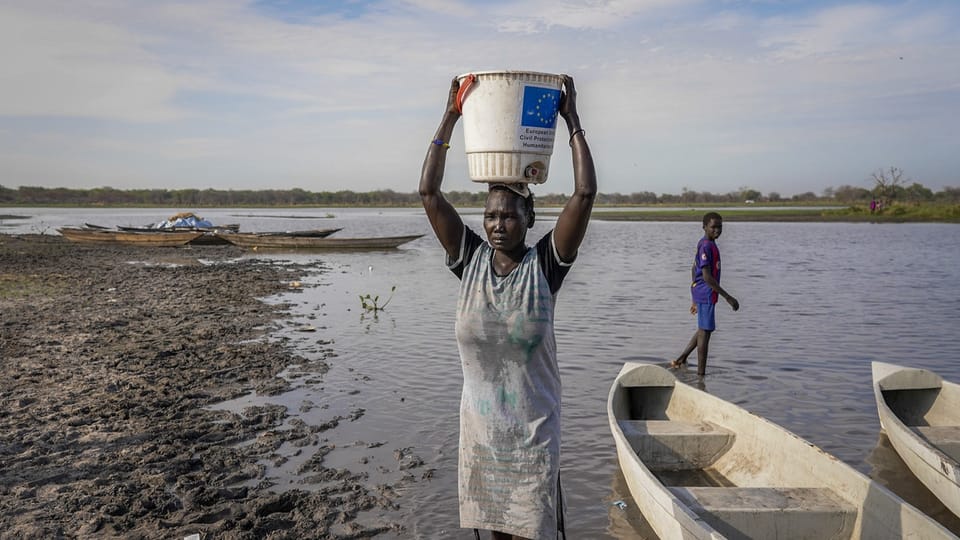
Legend:
According to the UN, it would need around 4 billion francs for basic emergency aid alone. But so far there have only been commitments for 40 percent of this amount.
Keystone/AP Photo/Sam Mednick (05/04/2023)
